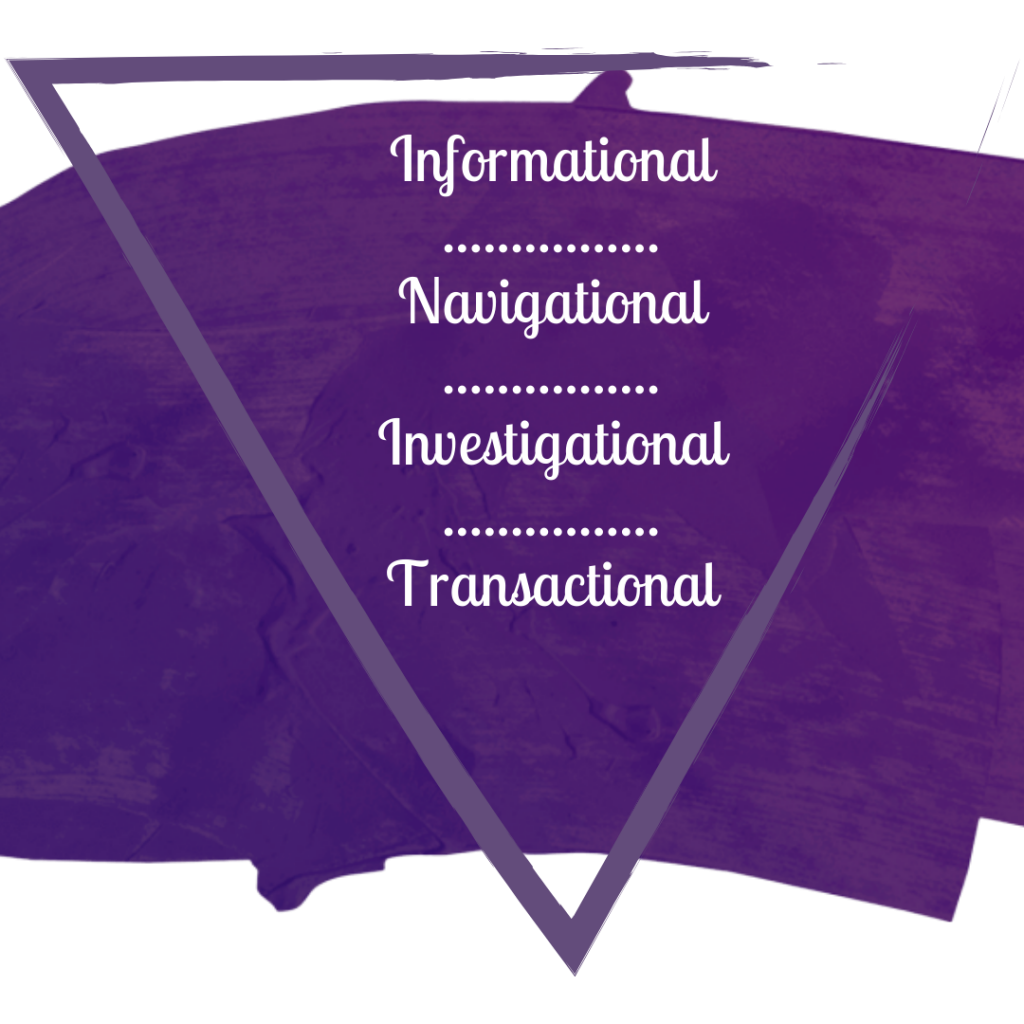When you are creating a piece of content and getting started with keyword research, whether it’s for a blog, a location page or a service page, you need to keep the reader in mind. The content needs to be written so that readers understand what the page is about and what action you want them to take on your website. It could be requesting more information, or visiting another page to continue learning about your business. You are also creating content for Google. Google wants to display the search queries that best match not only what a user searched for, but the reason behind their particular search query, or their search intent.
“Google houses the world’s information. They very likely know what the majority of people searching X are seeking, and they’re going to continue to get better and better and better at that.”
Britney Muller
What Does Search Intent Mean
Search intent, sometimes referred to as user intent, is the goal a person has when they enter a search query into Google or another search engine. Google tries to interpret what the searcher is looking for and displays the websites it believes best matches what the searcher is looking for.
People’s search intent usually falls into one of these four categories, almost following a customer journey:

- Informational: People with this intent have a specific question or are seeking information about a certain topic. They are looking to educate themselves on a particular topic. This might be the first step in the journey before they are ready to make a purchase.
- Navigational: People with this intent are looking for a particular website or web page. They may done in the informational stage at this point and are wanting to visit a specific website.
- Investigational: People with this intent want to learn more about a particular product or service with the plan to make a future purchase. They may be thinking about their future purchase when performing this type of search.
- Transactional: People with this intent plan to make and/or complete a purchase. They have done their research, they found the best price or the best reviewed product/service and they are ready to buy it.
Search Intent and Keyword Research
Search intent is a great place to start when you are needing to re-optimize an existing page on your website, add a new page of content or create a blog post. When you perform a search query for a term you might like to try and rank for, Google is showing you the pages that best match the search intent of a particular query; these are the pages that best represent that term. If you want your page to rank for that phrase, it needs to follow a similar layout.
Here are some things I like to do when I get started with optimizing a web page or blog article, I start with a Google search for a keyword phrase I may want to rank for and take note of the below:
- See what begins to populate in auto-complete. Autocomplete is a feature within Google designed to make it faster and easier to complete searches queries you’re beginning to type. As you begin typing your query, Google provides suggestions of searches that might be relevant to you. Take note of these; are any of these terms that would be relevant for your website? They may not be right for the page you are focusing on currently, but they might be terms you want to consider them for future pieces.
- Visit the pages that are ranking at the top of Google. If a page is ranking for a keyword phrase, Google is telling you that website best matches that search intent for that keyword phrase. Take a close look at what that page is doing and how it has been optimized. Is the keyword phrase included in on-page elements? (URL, page title, header tags, anchor links, etc.) How many times is the keyword used? Are they using any semantic (similar) words/phrases that you should consider? How long is the content? Of course, there are other organic ranking factors that could be helping this page perform better, but this is a great place to start without doing a full site audit.
- Look at the People Also Ask section. These are questions related to a search query. These are also questions you can address in your content as part of an FAQ, or even just as headers within your content. As an SEO and content marketer, you want to match search intent, so include all of the information a person may want to have answered about your product or service. Think about the follow-up questions someone may have about your product or service after initially searching for it; the People Also Ask section might provide valuable insights about those questions. Google is showing you things related to the intent of the query, so it might make sense to address them.
- Searches related to [search query]. If you scroll to the bottom of the search results page (SERP), you will see several search terms and phrases that you should consider researching. Some of them may not be relevant, but some could be helpful. Try searching for those terms and then looking at the top ranking pages and the people also ask to see if you gain any new information.
Picking the Best Keywords
So, how do you know which keywords are the best ones to use? It depends. (I wouldn’t be a good SEO if I didn’t say that at least once!) But it really does depend. But the best thing to do is look at what kinds of websites rank for the keyword phrase or phrases you wan to target and see if those look like websites you can compete with.
You will want to put all of the keywords you are analyzing into your favorite tool (I use Moz’s Keyword Explorer) to see what kind of search volume they have, but it really does depend. There are many other factors that may come into play, such as location of your business, the addition of geo-modifiers and your overall SEO strategy. Searching for pizza places, pizza places in austin, and pizza places near me will all yield different results. So experiment and see how the search results change when you begin to add things to your queries until you find what will work best for what you are trying to target.
SEO is about testing and trying out new things and new ways to rank (while following Google’s quality guidelines). Google doesn’t like to show us what’s going on behind the curtain. At the end of the day, the best SEOs are making really well-thought educated guesses. Don’t be afraid to go after a keyword that might be out of reach, or out of left-field, you never know, it might be exactly what someone was looking for.
And don’t try and rank for near me, that’s all about actual location and not using that as a keyword in your content.
